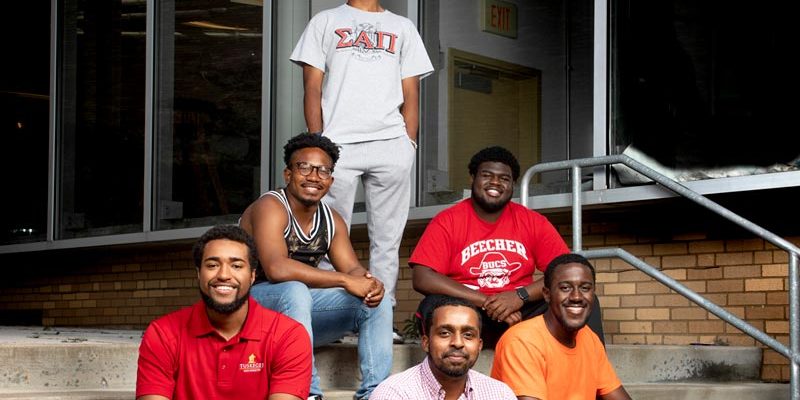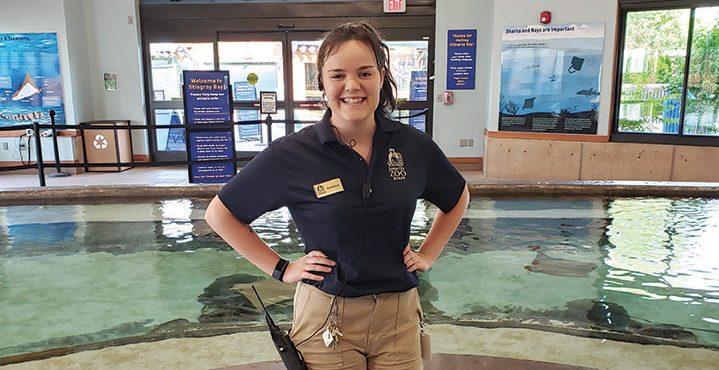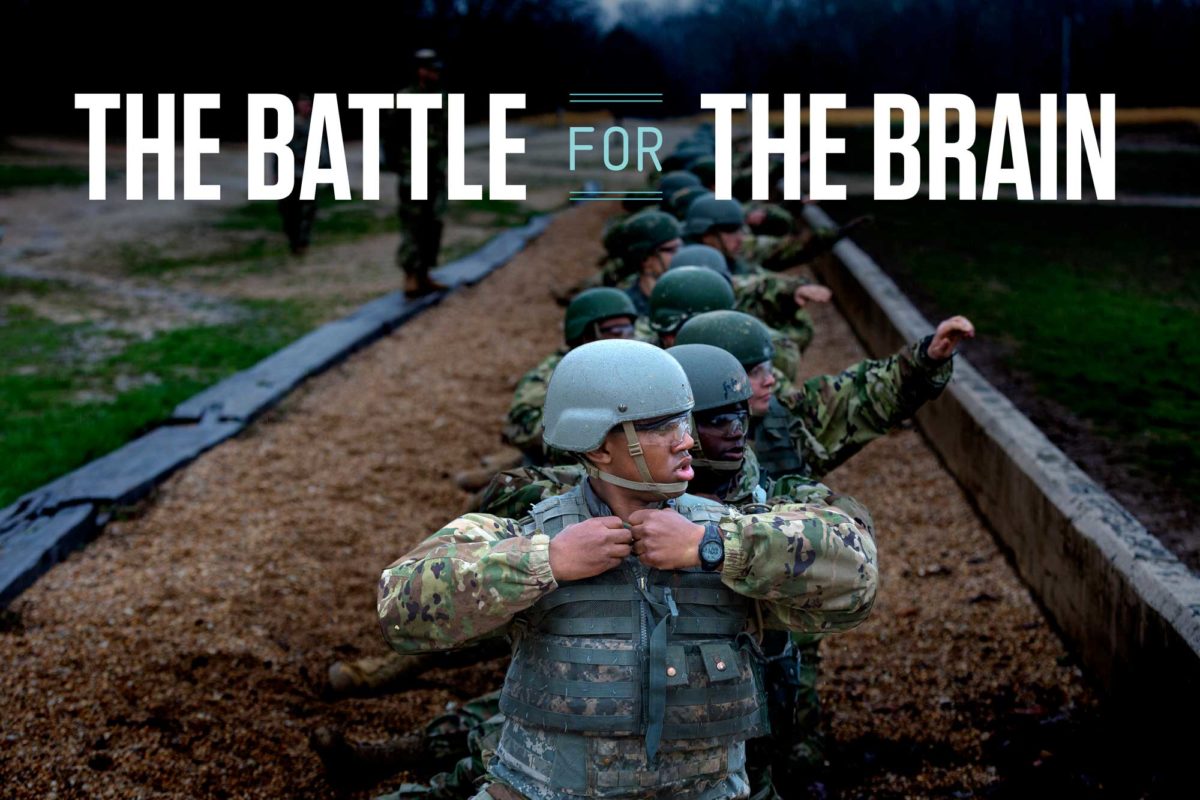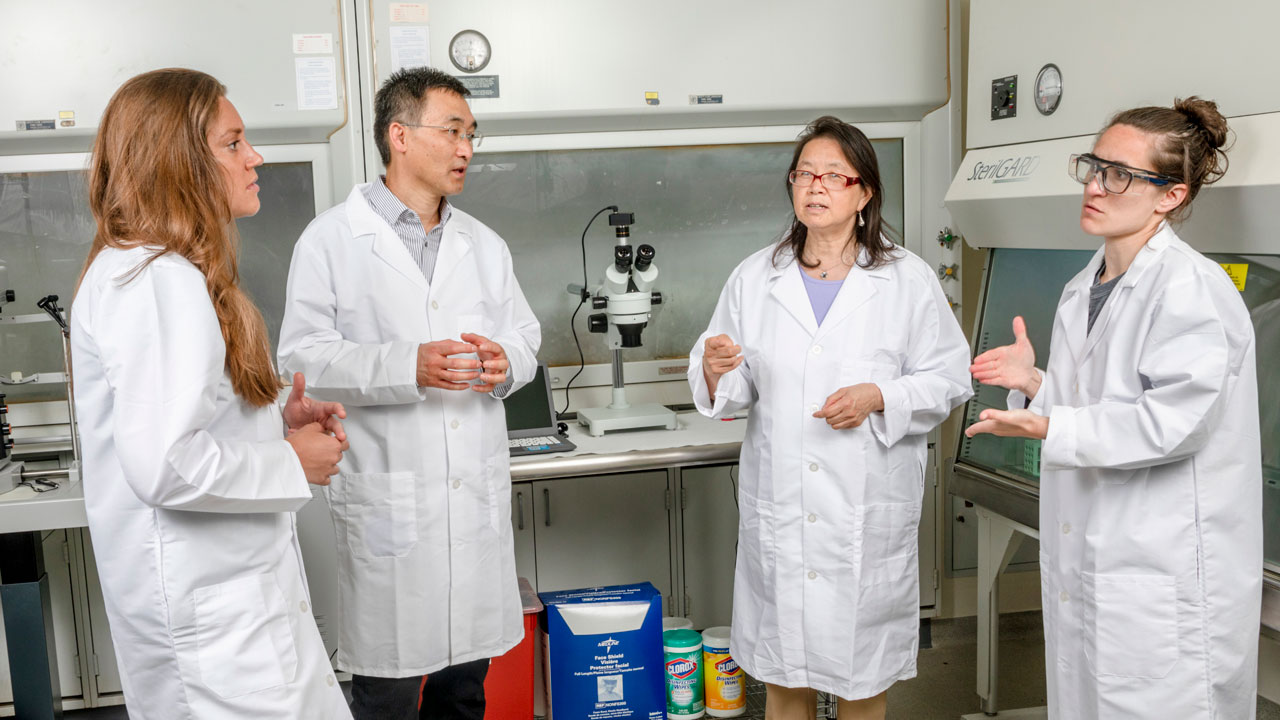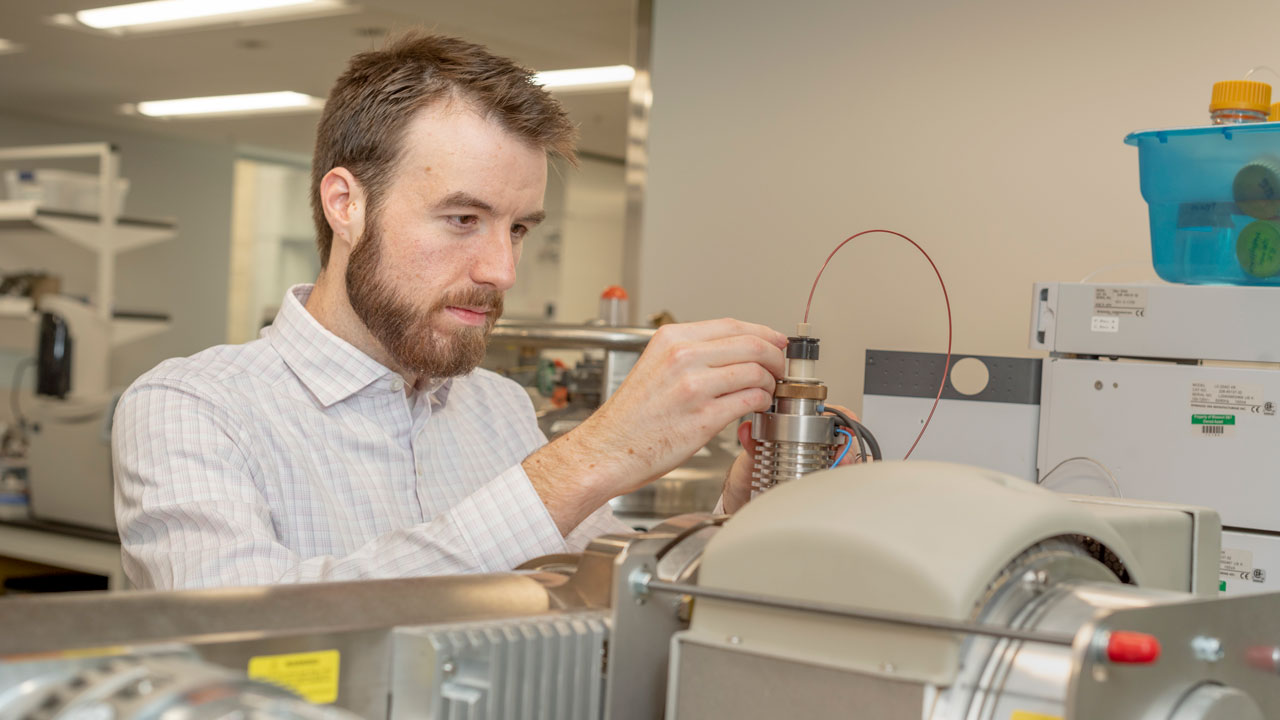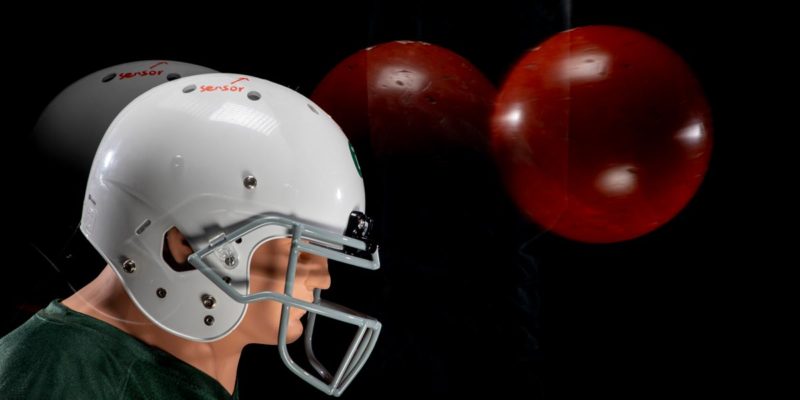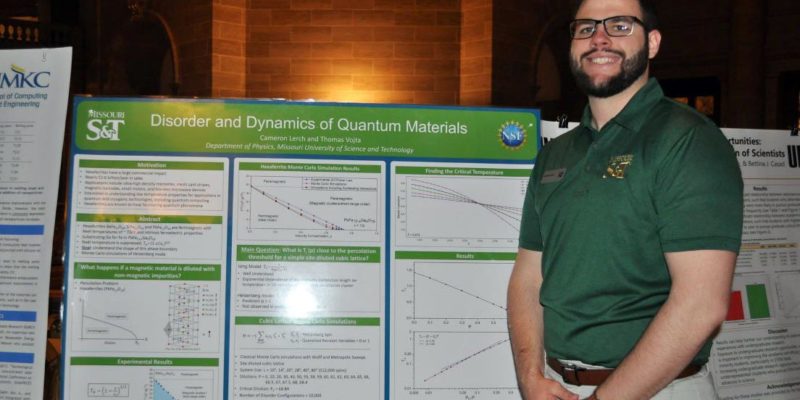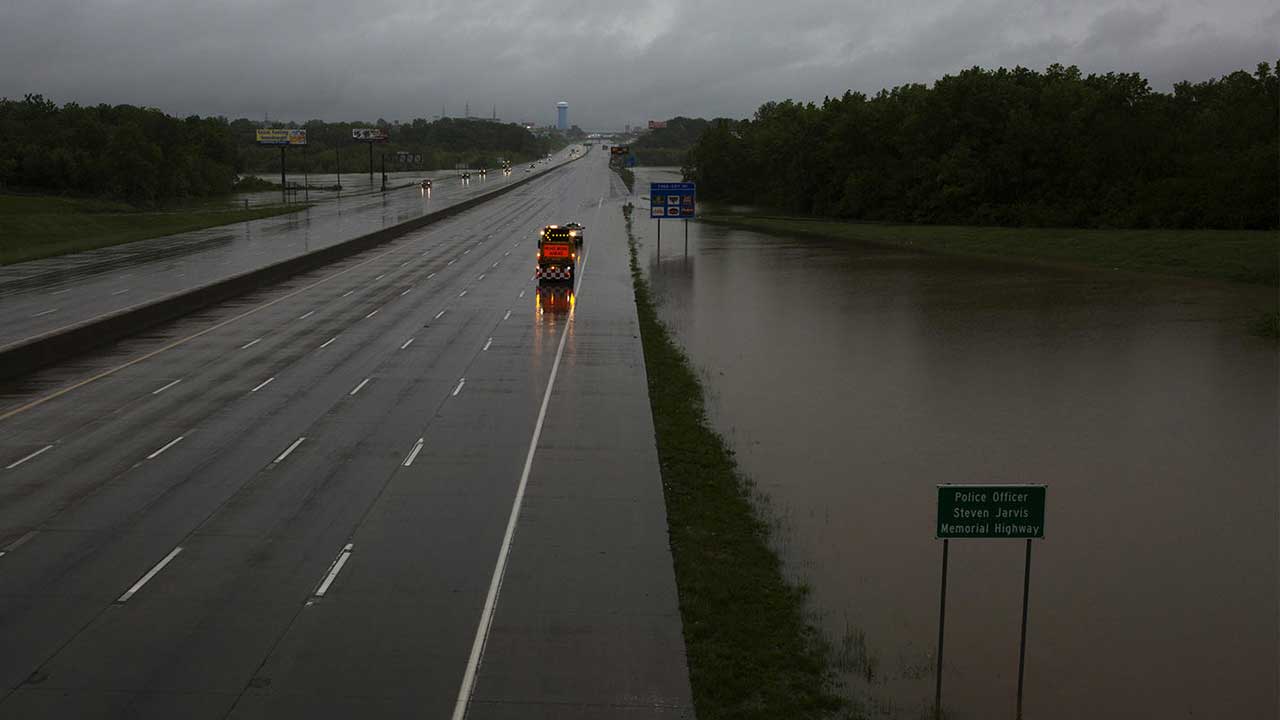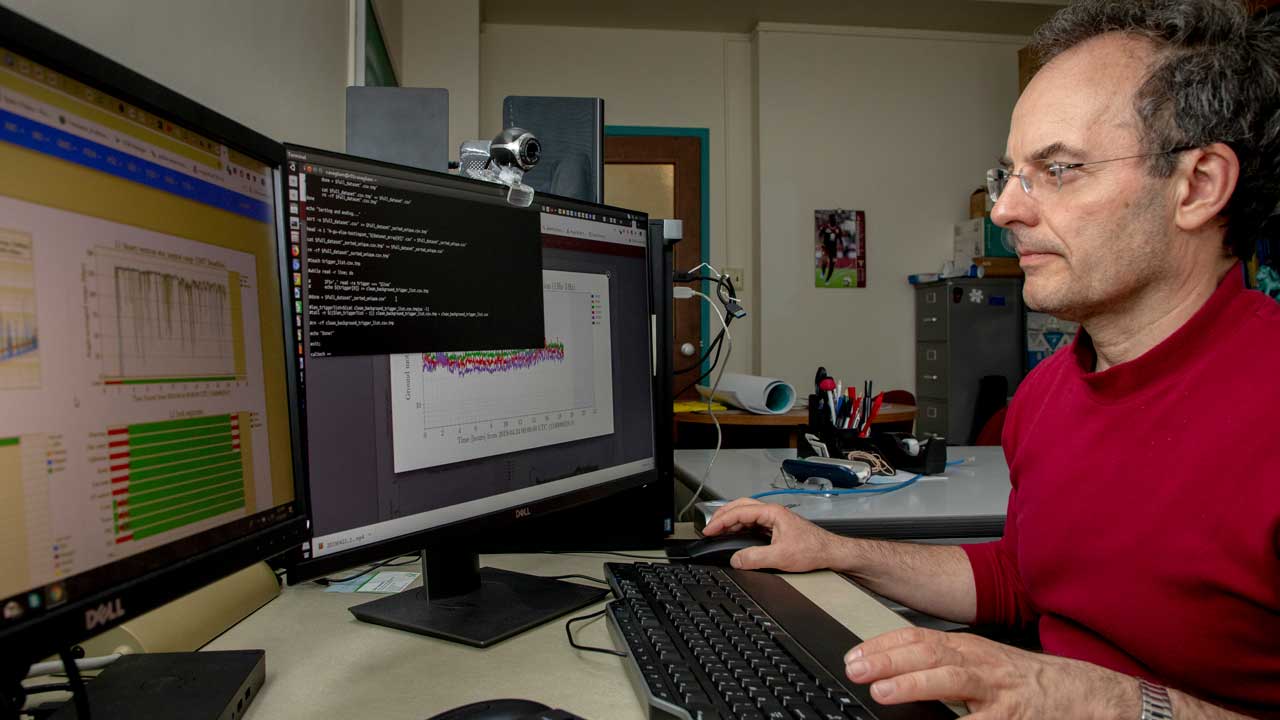Research
Summer research program supports underrepresented engineering students
Six undergraduate students from Tennessee State University in Nashville and Tuskegee University in Tuskegee, Ala., spent two months this summer conducting engineering research at Missouri S&T as part of a new program designed to encourage underrepresented engineering students to consider pursuing graduate studies.
Read More »A summer at Stingray Bay and beyond
Biological sciences senior Vanessa Mahan thought she wanted to be a medical doctor. But after a semester’s coursework in cell biology, Mahan decided the profession was not for her. Further exploring her interests through a biodiversity course, Mahan found her passion — merging medicine with her love of animals.
Read More »The battle for the brain
By Andrew Careaga, acareaga@mst.edu Soldiers in combat encounter life-threatening perils at every turn. But even if they survive a dangerous situation like a roadside bomb detonation, that experience could result in long-term, life-threatening damage. And the cause may never be known.
Read More »Seeking TBI therapies
By Delia Croessmann, croessmannd@mst.edu Complications from TBI can be life altering. They include post-traumatic seizures and hydrocephalus, as well as serious cognitive and psychological impairments, and the search for treatments to mitigate these neurodegenerative processes is on.
Read More »Understanding the invisible injury
By Sarah Potter, sarah.potter@mst.edu “Research is creating new knowledge.”–Neil Armstrong Research keeps professors on the vanguard of knowledge in their fields and allows students to gain a deeper understanding of their area of study. For students and recent graduates researching traumatic brain injury (TBI) at Missouri S&T, the work is both a passion and a […]
Read More »Analyzing small molecules for big results
By Delia Croessmann, croessmannd@mst.edu At only 28 years old, Casey Burton, Chem’13, PhD Chem’17, director of medical research at Phelps Health in Rolla and an adjunct professor of chemistry at Missouri S&T, is poised to become a prodigious bioanalytical researcher.
Read More »To prevent and protect
By Peter Ehrhard, ehrhardp@mst.edu Traumatic brain injuries (TBIs) are an unfortunate but all too common occurrence during military training and deployment. Because mild TBIs often present no obvious signs of head trauma or facial lacerations, they are the most difficult to diagnose at the time of the injury, and patients often perceive the impact as […]
Read More »Physics grad receives NSF graduate research fellowship
Cameron Lerch, Phys’19, was awarded a place in the National Science Foundation Graduate Research Fellowship Program.
Read More »Deep learning to escape deep water
Artificial intelligence (AI) may soon help transportation agencies and first responders determine the best evacuation routes during floods, thanks to the work of Missouri S&T researchers.
Read More »At the forefront of astrophysics research
Using two 4-kilometer-long laser interferometers located in Washington and Louisiana, scientists with the Laser Interferometer Gravitational-wave Observatory (LIGO) detected a weak 1.3 billion-year-old signal from the collision of two black holes. The discovery proved the existence of the gravitational waves Albert Einstein predicted in his general theory of relativity.
Read More »